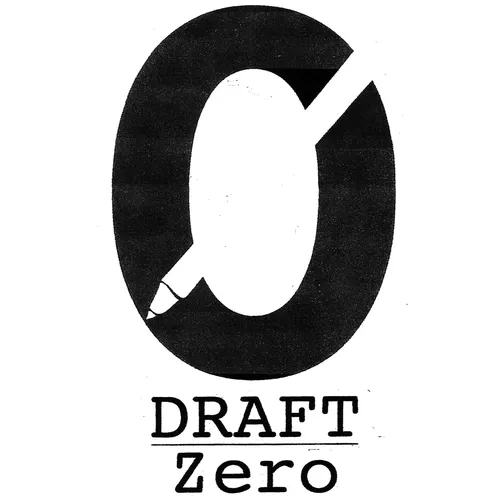
Draft Zero: a screenwriting podcast
Two emerging screenwriters – Chas Fisher and Stuart Willis – try to work out what makes great screenplays work. Discovering what it takes by analysing what successful writers put on the page.
- Update frequency
- every 34 days
- Average duration
- 107 minutes
- Episodes
- 100
- Years Active
- 2015 - 2025
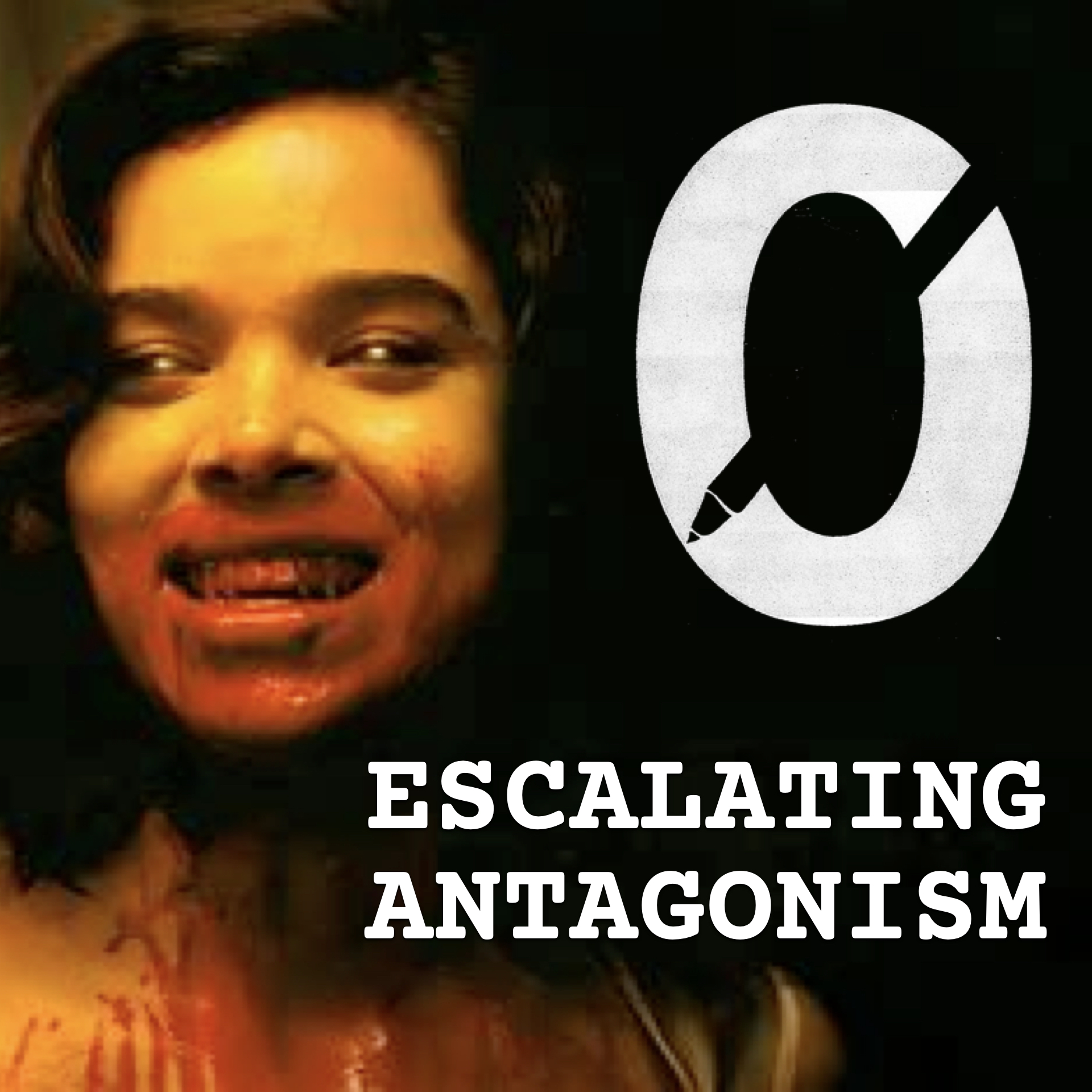
DZ-121: Escalating antagonism
How do the antagonistic forces in your story escalate distinctly from the protagonists’ journey?
We often struggle to develop the middle stages of a story. Could this be because we focus on our prot…
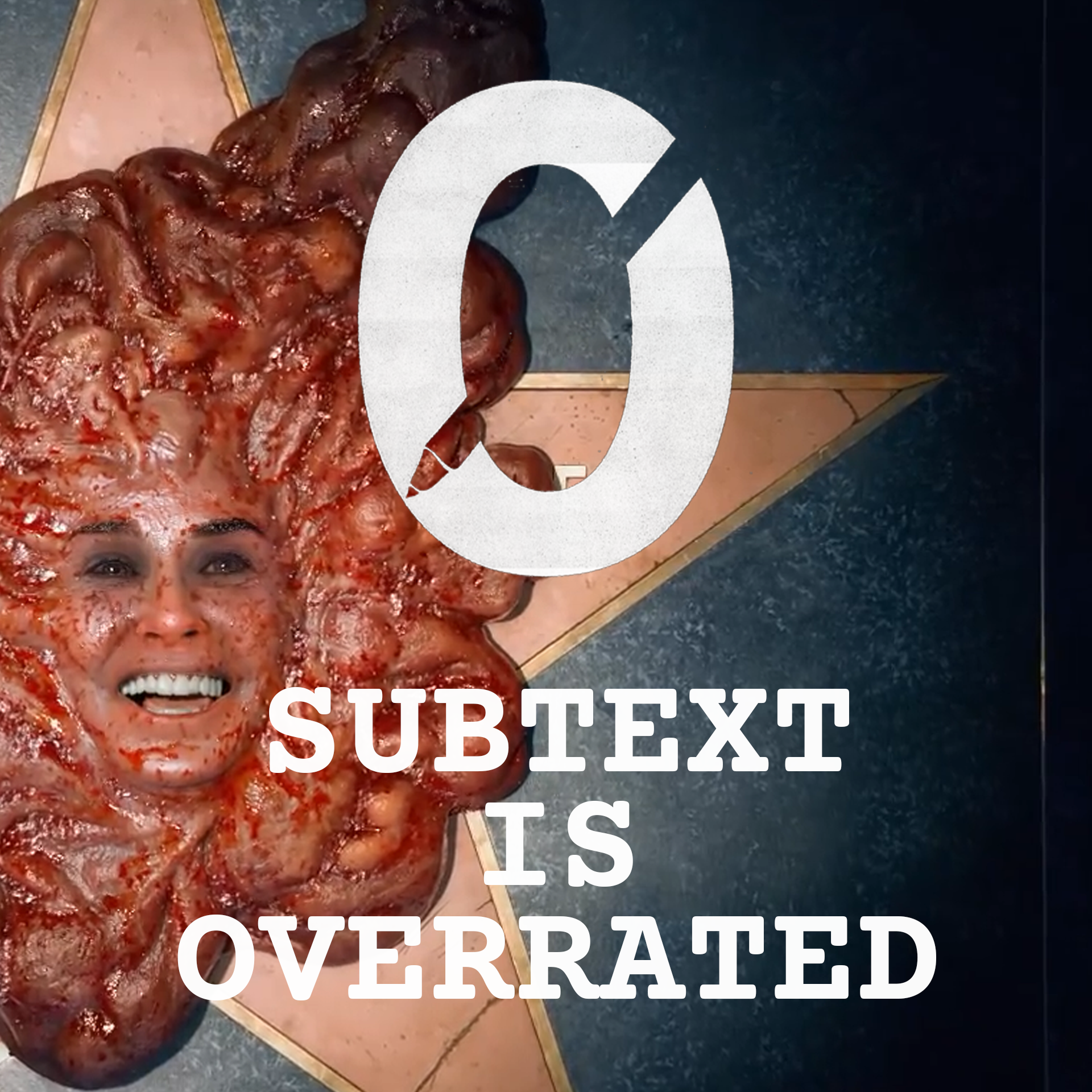
DZ-120: Subtext is overrated
Or, how focusing on good drama will result in good subtext.
We often hear how subtext is important for good screenwriting. We’re here to tell you it isn’t. Good subtext is a result of good drama, …
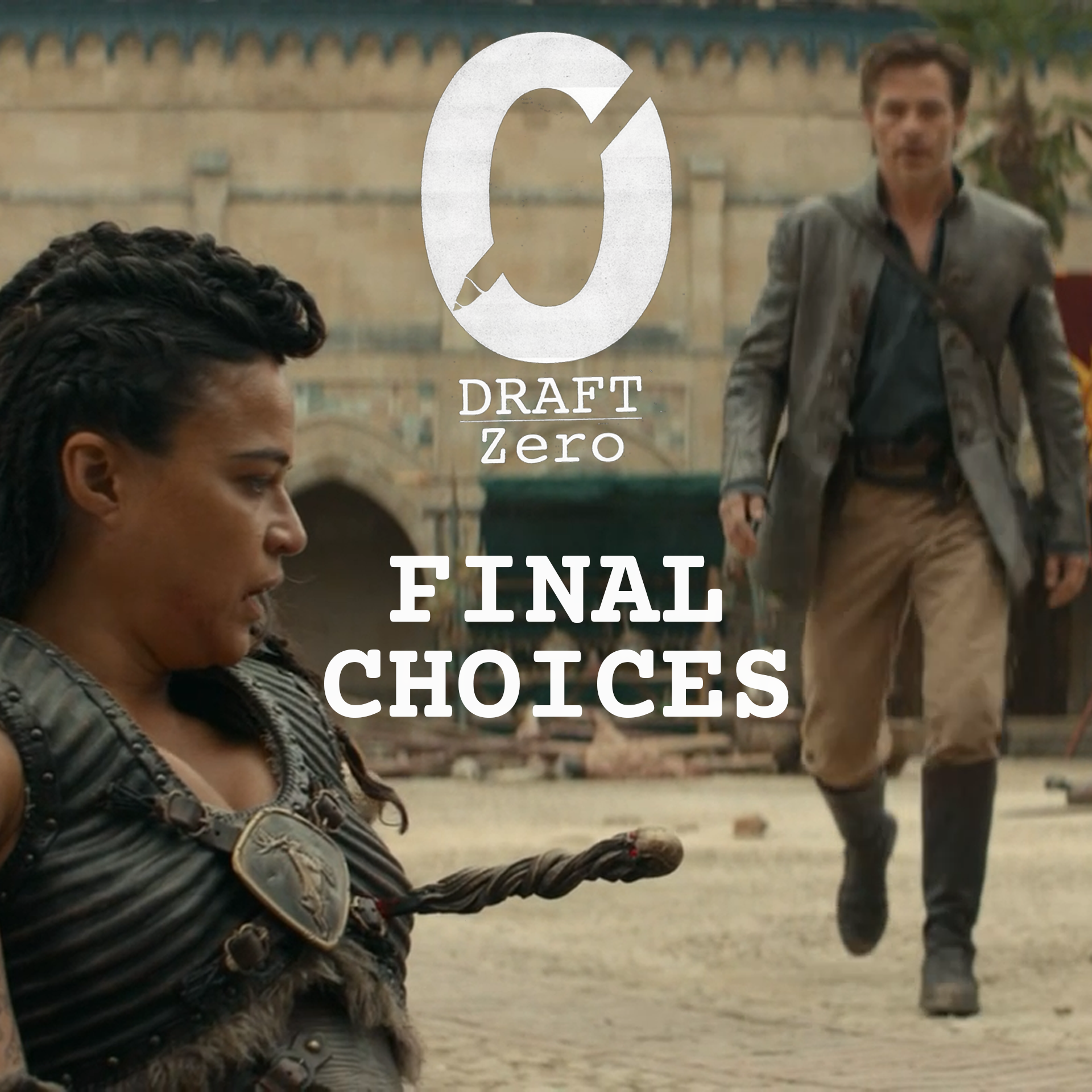
DZ-119: Final Character Choices & Great Endings
How does your protagonist’s final choice resolve the plot, character arc and theme?
In this episode, Stu and Chas focus solely on the final choices made by protagonists and how that reflects their ch…
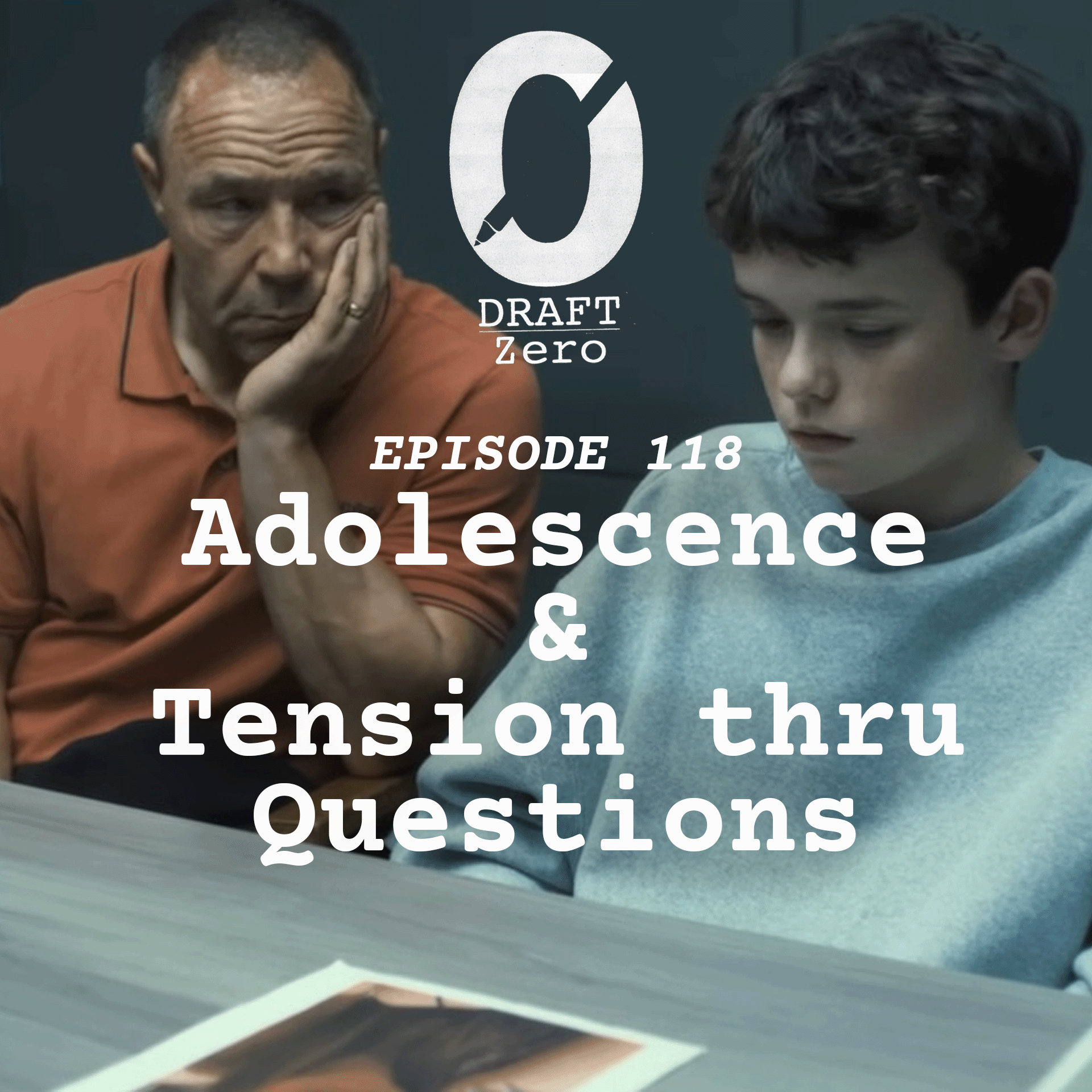
DZ-118: Adolescence and tension through questions
How do dramatic questions create tension?
In this episode, Stu and Chas delve into the cultural phenomenon of ADOLESCENCE. We try to find the craft tools that have made the show so compelling an…

DZ-117: Tonal shifts
How can we teach our audience new storytelling rules in the middle of our story?
Following on from our episodes on establishing tone through action lines and through character, this is what we have b…

DZ-116: Writing physical comedy
How do you make extended technical scenes funny on the page?
Mel joins Chas to tackle physical comedy. We limited our homework selection to extended scenes (as opposed to moments and sight gags) in l…

DZ-115: A Christmas Special - Rewatching & Rituals
What magic do Christmas movies use to make them so rewatchable?
In this “backmatter” episode of Draft Zero, Stu, Chas, and Mel Killingsworth embark on a festive exploration of what makes holiday film…

DZ-114: Climaxes in Challengers
How does ending your story on the climax affect audience experience?
While Stu is on show, Mel and Chas sit down to analyse the meaning behind the ending of 2024’s CHALLENGERS, especially when - upon…

DZ-112: Breaking the 4th wall
DZ-112: Breaking the 4th wall
How is the effect of breaking the 4th wall different to VoiceOver?
As part of our series on how filmmakers can directly communicate to the audience, we finally examine t…

DZ-111: Unreliable Narrators and Fight Club
How does the unreliability of a narrator impact the way a story is told?
In this episode, Stu and Mel (sans Chas!) take a deep dive into FIGHT CLUB and its use of the unreliable narrator. This is a …

DZ-110: Voiceover
How can you use Voiceover without it feeling like a cheat?
In this episode, we finally delve into the world of VOICEOVERS (as part of our larger series exploring craft tools that allow characters & s…

DZ-109: Talking DIRECTLY to your audience
What are the different ways a filmmaker can ask something of the audience?
Chas and Stu are joined by recurring guest Mel in this prelude episode to upcoming episodes on Voice Over and Breaking the F…

DZ-108: The Emotional Event with Judith Weston
How and why should every scene have an emotional event?
For the first episode of our tenth anniversary year, we are joined by Judith Weston to talk about Emotional Events.
What is an emotional event…

DZ-107: Establishing Tone Through Character
How can we use dramatisation to create tone?
In this episode, Chas and Stu continue their deep dive into how to write tone by examining films with “light” (we use the phrase loosely) tones: LADY BIRD…

DZ-106: How do you know if you have enough story?
How do you know if you have enough narrative fuel to write a script?
In this episode, Chas, Stu and Mel attempt to answer a listener question:
“In your own pre-writing process, how do you know you h…

DZ-105: Establishing Tone Through Big Print
How can we teach the reader to find the humour in our darkness?
Chas and Stu finally start their long-mooted exploration of tone with a series that examines films and shows with unusual tones and div…

DZ-104: Characters Alone - Dramatizing the Internal
How can scenes where characters are alone increase our connection with them?
In this episode, we explore the audience's connection with characters through the lens of characters being alone.
Chas and…

DZ-103: Game of the Scene 2 - Triangle of Sadness, The Favourite
How can games elevate dramatic scenes?
In part two of this two parter, Stu and Chas go further into the game (of the scene) and look at how games force characters *other* than the protagonist to inte…

DZ-102: Game of the Scene - Bluey, John Wick 4
How can ‘games’ help us write better scenes?
Stu and Chas turn their attention to a topic that has long eluded them: the game of the scene. We look at how considering the game that characters are pla…
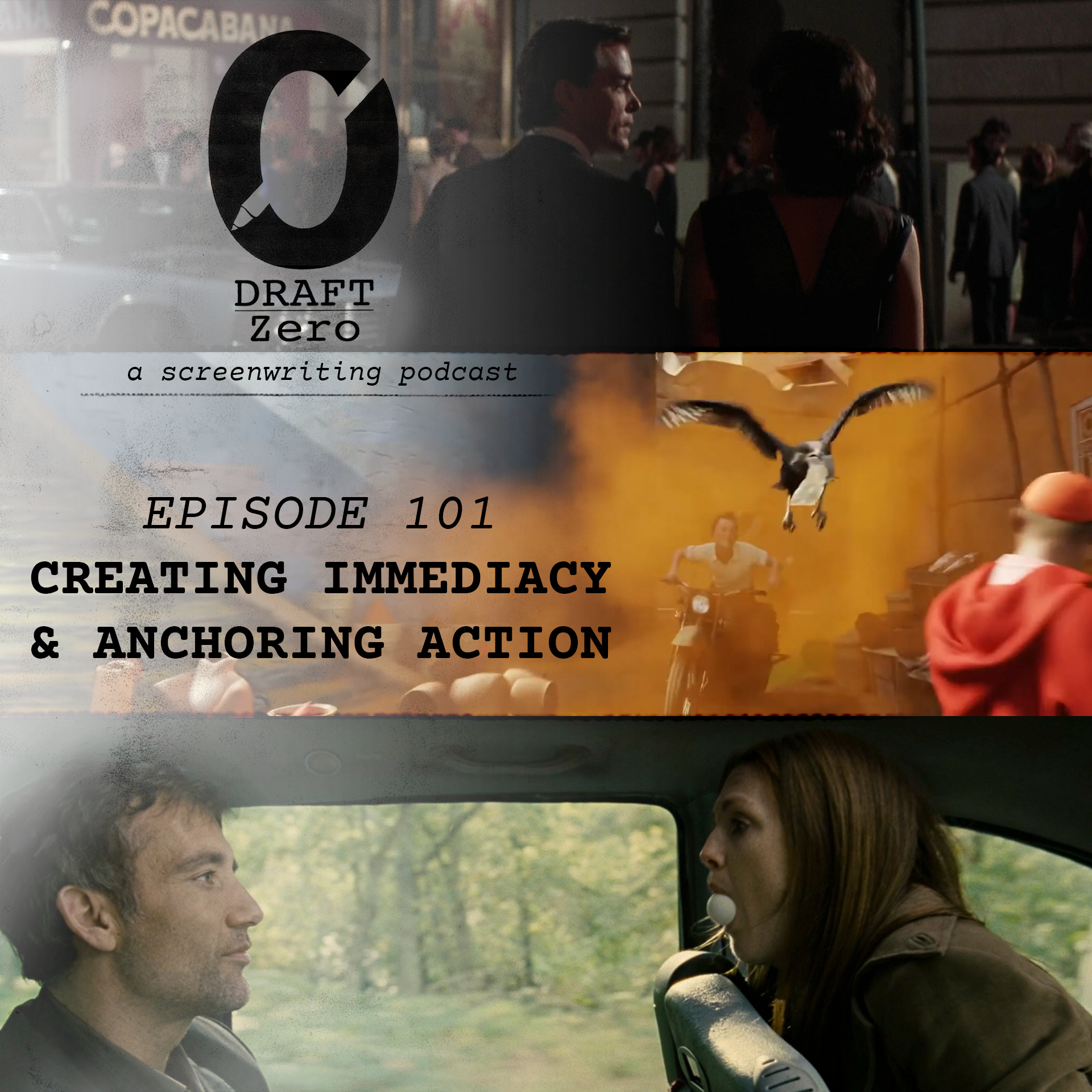
DZ-101: Oners - Creating Immediacy & Anchoring Action on the Page
What can we learn by analysing how ‘oners’ are written on the page?
Chas, Stu and Mel reunite to talk about writing the *feel* of camerawork in screenplays. We use “oners” — a long-playing continuous…